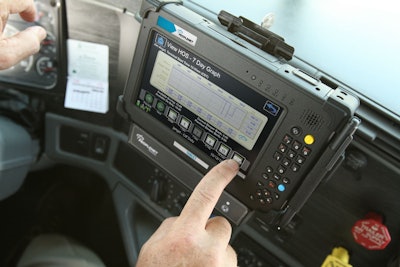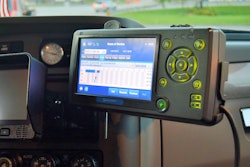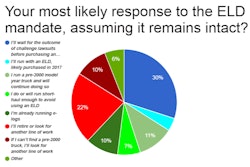
Driver William Trescott filed a motion in January with the court overseeing the case, the 7th Circuit Court of Appeals, asking to intervene on the side of the lawsuit’s plaintiffs, the Owner-Operator Independent Drivers Association and owner-operators Mark Elrod and Richard Pingel. The 7th Circuit Court denied Trescott’s motion, so he appealed to the next highest court — the U.S. Supreme Court — in early April.
The Supreme Court considered Trescott’s motion June 2, according to court documents, and issued their decision to deny Trescott’s motion on June 6.
This does not mean the Supreme Court has chosen not to hear the case. A petition may still be made for the nation’s high court to hear OOIDA’s challenge to the Federal Motor Carrier Safety Administration mandate after the 7th Circuit issues its decision.
Trescott told Overdrive last month he sought to intervene in the case because he wanted to help OOIDA spell out more arguments against the DOT’s ELD mandate. OOIDA says it had no involvement with Trescott’s legal motions. OOIDA was bound to a 14,000-word limit in its complaint against the ELD mandate. Trescott had hoped to add to the length and scope of OOIDA’s initial 14,000-word lawsuit.

OOIDA’s complaint was officially filed in late March. The defense in the case, which includes FMCSA and the broader U.S. DOT, have until June 15 to file their response to the lawsuit.
If the Supreme Court had granted Trescott’s motion to intervene, the court proceedings would have been delayed to allow time for Trescott to file his complaint.
OOIDA Executive Vice President Todd Spencer told Overdrive earlier this year he expects the 7th Circuit Court to issue a decision by year’s end in the case. OOIDA successfully challenged in August 2011 the DOT’s prior rule to require truckers to use ELDs to track hours of service.
OOIDA’s 2010-brought lawsuit centered on the mandate’s lack of protections against trucker harassment. The current lawsuit centers on the rule’s requirement that ELDs track trucks — and, effectively, truckers themselves — within a one-mile radius while on-duty. OOIDA contends such a requirement is a violation of truckers’ 4th Amendment protections against illegal search and seizure.
Overdrive explored the lawsuit and its angles in-depth last month. Click here to read that story.








